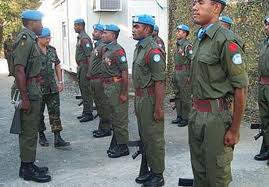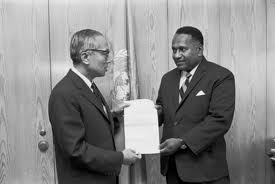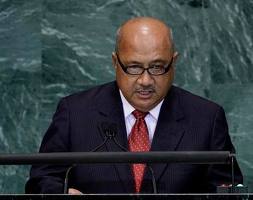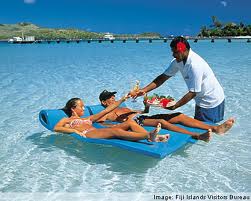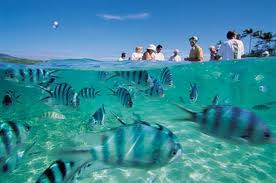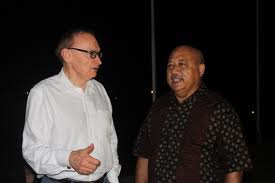By Mike Head
10 July 2012
Anational election called by the unconstitutional, Australian-supported government in Papua New Guinea has become a shambles, forcing an unscheduled third week of polling in seven provinces. Voting in the
Eastern Highlands province will now end on July 17—11 days after the
original July 6 national deadline.Logistical breakdowns, combined with allegations of violence, corruption, vote-buying, ballot box-stuffing and the exclusion of enrolled citizens from voting, have thrown the elections into disarray. An extension of time was granted by Governor-General Sir Michael Ogio on the advice of Electoral Commissioner Andrew Trawen.
The disruptions have cast doubt on the hopes of de facto Prime Minister Peter O’Neill, and his backers in Canberra and Washington, that the elections would end months of political instability, and provide a veneer of legitimacy to his administration.
Because of the mountainous terrain and lack of infrastructure across the country, the elections were intended to last a fortnight, ending last Friday. The delay in balloting will push back the counting of votes and then the negotiations between the various parties to form a new government, which are not expected to be concluded until next month.
Infighting within O’Neill’s shaky parliamentary coalition has also worsened, with his deputy prime minister, Belden Namah, accusing O’Neill of orchestrating a “disaster” by reversing the government’s earlier decision to postpone the elections by six months. In April, O’Neill had pushed legislation through parliament to authorise a delay, but did an about-face when threatened with sanctions by Australian Foreign Minister Bob Carr. Protests led by university students against an election postponement also placed the de facto prime minister under pressure.
On June 28 Namah issued a press release denouncing O’Neill for bowing to the advice of Australian “advisers” to go ahead with the poll, despite the electoral rolls not being ready. Namah claimed that thousands of people had been deprived of voting rights. He issued a populist appeal to the public resentment against interference by Australia, the former colonial power that ruled Papua New Guinea (PNG) until 1975. “We must be patriotic and nationalistic in our approach towards decision making for the future of our country,” he declared.
Supporters of Michael Somare, whom O’Neill ousted as prime minister last August, have questioned the legitimacy of the elections. Somare’s son Arthur, a sitting member of parliament, said the delayed voting would be influenced by the results declared in the 11 provinces where balloting had finished. Michael Somare fuelled political tensions by telling Australia’s SBS media network that he would win the election and ensure that O’Neill “will go to jail”.
The country’s small political establishment is splintered into 46 so-called parties—many based on local businessmen who have benefited as a result of huge mining operations. In the largest project, US transnational Exxon-Mobil, along with its Australian-based partners, has committed $16 billion to develop natural gas fields in the southern Highlands, with production due to commence in 2014.
A record 3,435 candidates are vying for 89 local and 22 provincial seats. The election has been dominated by “money politics”—the purchasing of votes by wealthy power brokers, or by disbursements from parliamentarians’ electoral allowances. According to media reports, it is not uncommon for businessmen in the western and southern highlands to fork out 1 million kina ($US480,000) on campaigns—subsidising sporting teams and other groups, buying pigs for feasts and financing campaign teams.
The conflicts over the election threaten to deepen a political crisis that began with O’Neill’s removal of Somare, which the country’s Supreme Court declared unconstitutional last December. The court reaffirmed that ruling in May, ordering O’Neill to step down. Instead, O’Neill unlawfully reconvened parliament, purporting to nullify the ruling, even though the assembly had already been prorogued for the national elections.
The turmoil is a striking example of the tensions being generated throughout the Asia-Pacific region by the aggressive drive of the Obama administration to combat China’s growing influence. Washington and Canberra welcomed Somare’s ouster because the longstanding prime minister had developed closer relations with Beijing, and encouraged Chinese investment in major mining ventures.
The US plainly expects Australia to ensure that Chinese influence is pushed back in PNG. The United States was “in a competition with China” in PNG, Secretary of State Hillary Clinton stated publicly in March 2011. She referred specifically to the importance of the US investment in the Exxon-Mobil project.
Canberra has devoted considerable resources to staging an election that can lend credibility to O’Neill. About 250 military personnel from Australia and New Zealand, together with 22 members of the newly created Australian Civilian Corps, have been deployed. Among other tasks, they have transported more than 1,000 PNG soldiers and police officers to the highlands on the pretext of providing security for the voting.
The Australian High Commissioner to PNG, Ian Kemish, told the Australian Broadcasting Corporation that it was an unprecedented amount of assistance. After the “pretty turbulent political period over the course of the last year,” he said, it was “very important” for PNG to “move on into new political territory where there’s more clarity and more stability.”
Last week, Australian Financial Review defence columnist Geoffrey Barker, a visiting fellow at the Australian National University’s Strategic and Defence Studies Centre, wrote that Australia had to arrest PNG’s “plunging trajectory towards state failure”. He advocated providing Australian civilian and military officials to “assist in running struggling departments,” and expanding project aid “to match efforts being made by China to gain a toehold in PNG.”
Barker also suggested that it may be necessary to launch an army and police intervention along the lines of the Australian-led RAMSI occupation of Solomon Islands in 2003. That was a colonial-style takeover of the key levers of power in the small South Pacific state, designed to reinforce Australian hegemony in the region. Barker said such an operation would be criticised by some PNG leaders as “imperialist and neo-colonial”, but “Australia is entitled to protect its citizens, its security and commercial interests in PNG.”
This blatant assertion of Australian interests is another sign of preparations for intense conflicts, military and civil, in the Asia-Pacific region. Last month, the Australian reported that military strategists had drawn up detailed plans for the invasion of PNG, as well as Fiji, as part of the Labor government’s 2009 Defence White Paper.
After the Australian report appeared, the Lowy Institute lamented the fact that the article had “further damaged Australia’s legitimacy to influence PNG political elites and eroded public support among locals for greater Australian intervention.” Nevertheless, the institute insisted that indications of “the most violent and corrupt elections in the nation’s 37-year post-independence history” made clear that “Australia and other friends of PNG” needed to act.
A RAMSI-style intervention in PNG, a far larger country than Solomon Islands, with a population nearing seven million, would require substantial US support, even more than was the case during the 1999 Australian-led military occupation of East Timor. The Obama administration’s rotation of 2,500 US Marines per year through Darwin by 2017 and associated aerial and logistical support could assist such an operation.
Whatever the eventual outcome of the PNG elections, plans are clearly being discussed in Canberra and Washington to assert their geo-strategic interests, notably against China, regardless of the wishes of PNG’s people.
The author also recommends:
Australian military plans for invasion of Fiji and PNG[12 June 2012]
Further political turmoil in Papua New Guinea
[2 June 2012]
Club Em Designs



